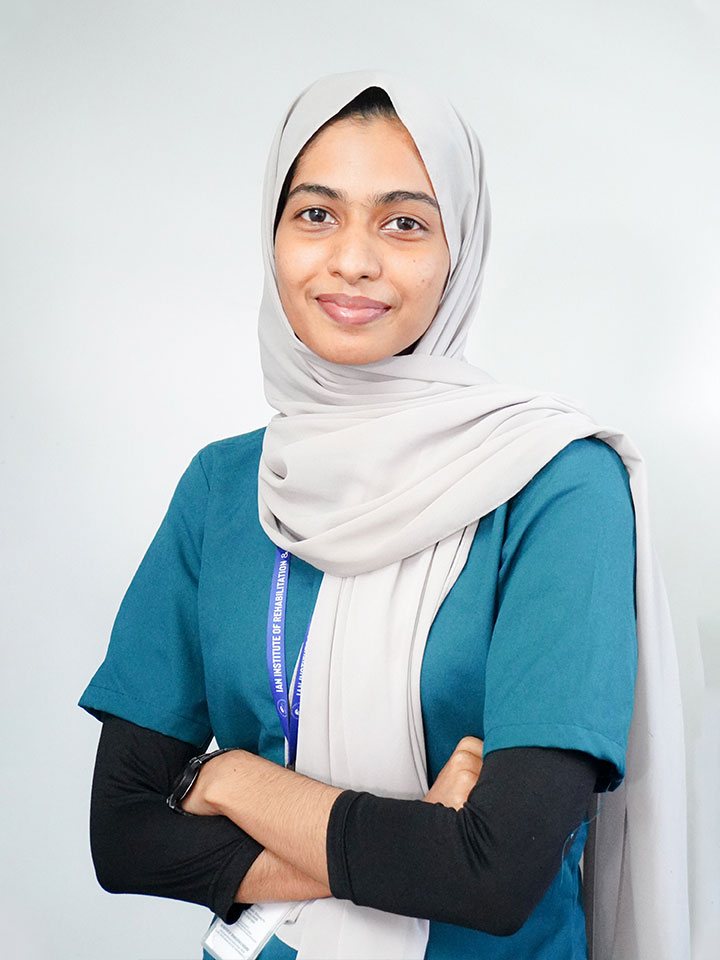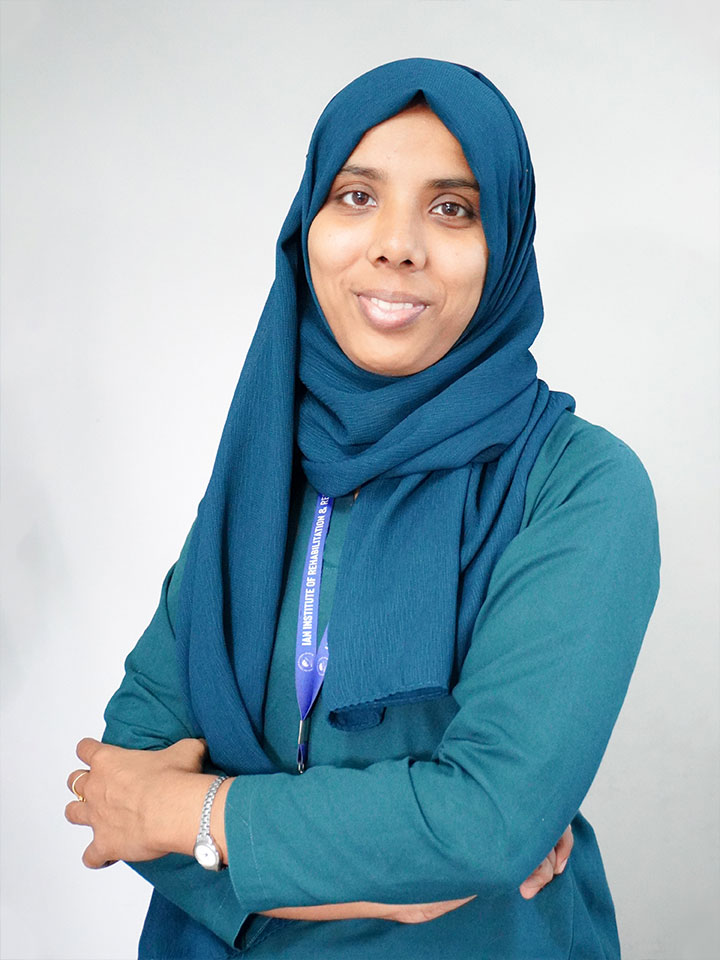Department
Speech Language Pathology
IAN Institute of Rehabilitation and Research:
Here at Ian, we harbour the most compassionate and talented speech-language therapists, present for your service to tackle speech, language cognitive and swallowing disorders. A forty-five-minute session with your child, parent, or any of your loved ones, will be utilized to enhance their communication abilities and eating skills through meticulously planned therapies and counselling with caregivers.
Who is a Speech-Language therapist?
A professional who prevents, assesses, diagnoses, and treats children and adults with the above-mentioned conditions after being qualified in the field of Speech-Language Pathology.
We have a panel of therapists skilled and continually trained in the latest advancements in the field, who conduct evidence-based practices in their diagnostics and therapeutics. Our service includes all aspects of communication and swallowing and related areas that impact communication and swallowing: speech production, fluency, language, cognition, voice, resonance, feeding, swallowing, and hearing. Here at IAN, we offer diagnostic and therapeutic services for the following conditions:
- Autism spectrum disorder
- Attention deficit hyperactivity disorder
- Hearing impairment
- Cerebral palsy and global developmental delay
- Speech sound disorder
- Repaired cleft lip and palate and other resonance disorders
- Aphasia
- Apraxia
- Dysarthria
- Stuttering & Cluttering
- Intellectual disability
- Voice disorders
- Dysphagia
What are these conditions?
Language disorders occur when a person has trouble understanding others or sharing one’s own ideas. This could include difficulty in using any form of language and also the usage of the language socially and functionally.
Speech disorders occur when one has difficulty in producing the right kind of sounds correctly or fluently or has problems with the person’s voice or resonance.
Social communication disorders occur when someone has issues using their speech and language socially for communicating. They would have issues in greeting, commenting, asking questions, modifying speech with respect to people and settings, or in storytelling or narrating events.
Cognitive communication disorders occur when one has issues in planning, remembering or organizing language to communicate. This usually happens as an effect of stroke, traumatic brain injury or dementia or could be congenital.
Swallowing disorders are difficult with feeding and swallowing after surgery, injury or congenital conditions.
Adult language disorder and motor neuron disorders are conditions that occur in adults when their language and speech respectively are impaired due to stroke, TBI, degenerative conditions etc during one’s older ages.
How do we work in our department?
We work patient-oriented in the multidisciplinary setup of IAN to upgrade the patient's quality of life. The patient arrives in our department for diagnosis wherein they’ll be assessed with the latest subjective and objective assessment tools in accordance to their presenting complaints. Through discussions with inter-departmental teams and addressing them scientifically and efficiently, the therapeutic plan is formed for the patient.
With our therapy, by the dedicated staff at our hands, we intend to improve the communication skills of the children through early intervention, enabling them to express their emotions, needs and thoughts. We strive for our kids to be provided with a means to exchange information and communicate such that they are understood irrespective of the medium of expression. Here at IAN, we utilize various Augmentative and Alternative communication methods including but not limited to facilitative communication and PECS, which is provided effectively with a proper analysis of the child’s needs and abilities.
Each patient is observed and studied in parallel as they attend the therapy, ensuring that no signs or symptoms are missed at any stage of their development. Our department is research-driven, with its therapists keen on figuring out the patient’s issues scientifically and deriving the appropriate intervention plans based on evidence.







